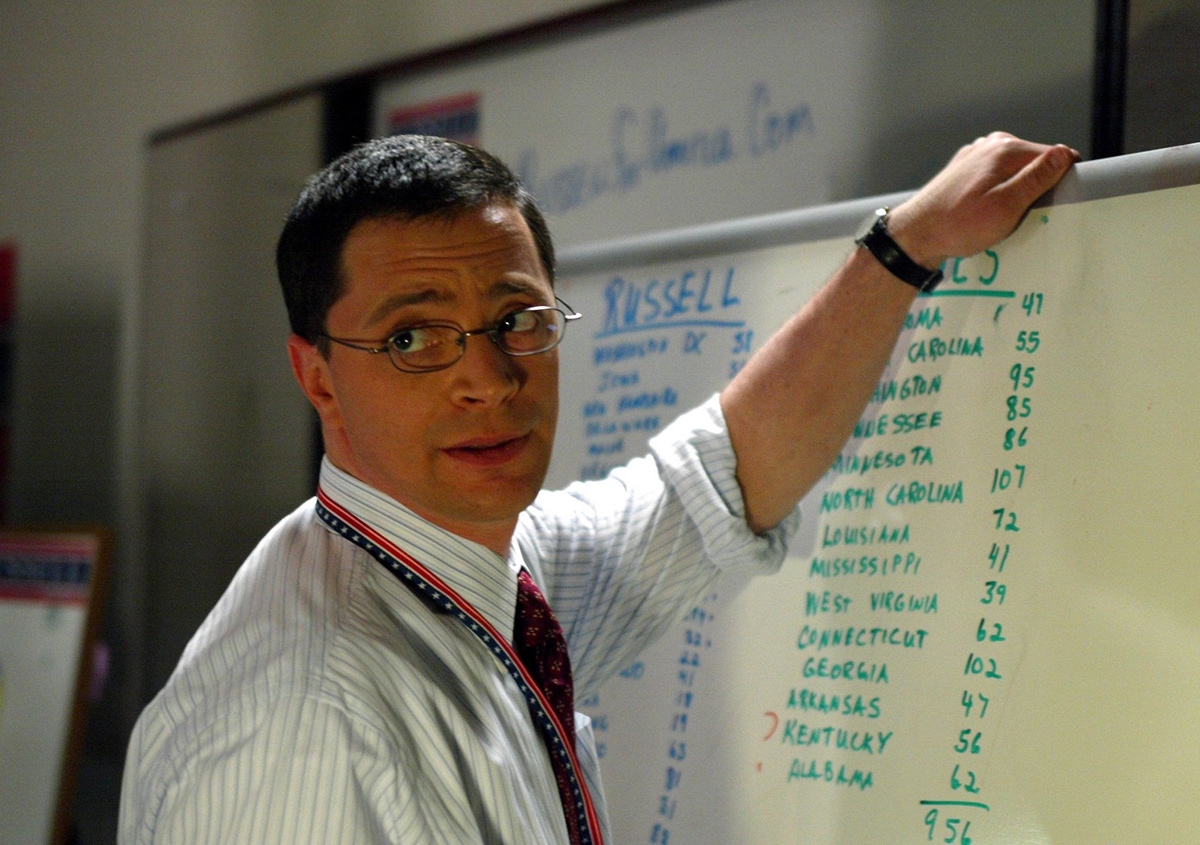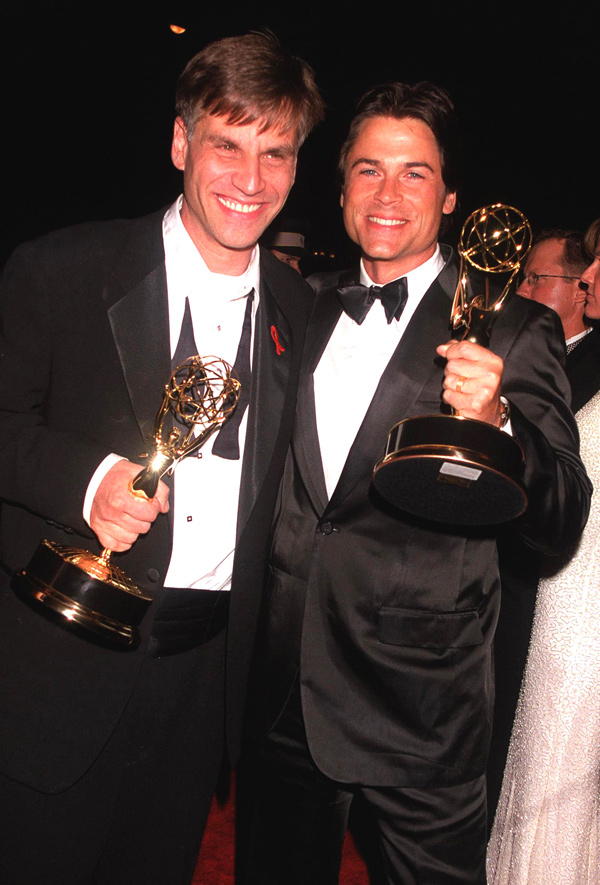Sorkin: We had five or six consultants who had worked in Washington. Oftentimes the idea for an episode would start with someone saying something like, "You know there's more to the census than we think." "Really? Tell me." They would say, "The president's motorcade starts moving as soon as the president gets in his car; Secret Service doesn't want him sitting there. So from time to time, when the president's on the road, a staffer will run into the store to buy a postcard, come out and find that the motorcade has gone." That's the beginning of an episode.
The Real C.J. Cregg: Dee Dee Myers
Sheen: Our political adviser, Dee Dee Myers, had all the inside information on how the West Wing operated under Mr Clinton and it was pretty extraordinary. As the show went on, we got more and more people involved, some from as far back as Eisenhower. The letter that arrived at the White House written by a young boy from Brooklyn asking President Roosevelt to help his father find a job? That really happened and I believe the President who finally received that letter was Jimmy Carter. There was one where we threw a guy out for drunkenness, a foreign diplomat who had no credentials. That was actually Boris Yeltsin. He locked himself in the limousine and was causing a great disturbance. They were afraid that the tourists would see him and so President Bush, the first President Bush, said, "Alright, get him out of there and we'll meet him in an undisclosed hallway near the Oval Office. We'll take pictures but there'll be no audio." Six months later, he was the Premier of Russia.

"There was some very good writing in the remaining years of the series, but frankly it just was not Aaron Sorkin. He was The West Wing. When that was lost to us we all felt... frankly, we felt the series would be cancelled."
Dee Dee Myers (Political Consultant/Former White House Press Secretary): Aaron loved to get behind the curtain a little bit. He loves Twelve Angry Men and he'd say, "Okay, I want to do a bottle episode. I want everybody in one room. I want them in the situation room at midnight. How do they get there?" And he loved Allison Janney. He said "She's such a great physical comedian. I want to do an episode where she has a root canal. I think it'd be really funny for her to be talking like, 'Pwesident Bawtlet'. What would happen if the press secretary had a root canal and couldn't talk?"
Schiff: I pitched to Aaron that Toby had a father that he was embarrassed by and that he came to visit him at the White House. I had imagined a Roy Cohn type character but he came back and said, "You know, you once told me that your grandfather was a member of Murder Incorporated? Can I use that?" And I said, "Yes, you can use that." And so that's how our first teaser came to be done in Yiddish: the day that Tobias was born and my father was on a hit.
Hill: We got serious letters, that Aaron would sometimes read out, about the fact that the President's daughter, who was like the American royal family, was dating a black guy. We got a lot of hate mail. I guess I was more shocked not that it was still embedded in people, but the fact that it was because of something on TV! I was like, "Wow. In this day and age? I guess we've still got a long way to go." But I'm sure that it gave Aaron some ideas of how to wrap up the first season.
Sheen: One of my favourite episodes was the homeless man that died and they found, in the overcoat he was wearing, a card of the speechwriter, Toby. He had given that coat to the Goodwill and this guy had ended up wearing it, died in it and Toby went to his funeral. He turned out to be a Korean war veteran. It was our first Christmas episode and that was a true story – a member of the staff had done exactly that. So many of these stories were far better than any fiction.
Lowe: What was also extraordinary was that there was never an executive at a table reading. Aaron didn't take network notes. And in terms of the budget, if Aaron wrote, "75 limousines pull out of the driveway," you showed up on the set and there were 75 limousines. Not 74, not 73 and not pink pages that say, "Everybody's on bicycles." It was an amazing moment in time.

